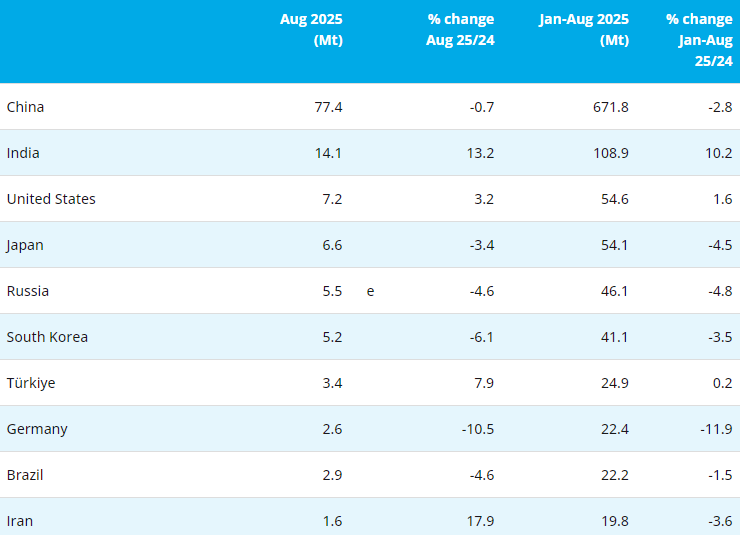China Daily reported that trade between China and Brazil is on the rise, but it will increase at a steady pace in the coming years as it becomes more mature.
Mr Roberto Azevedo, Brazil's permanent representative to the World Trade Organization who is also Brazil's candidate for the WTO's director general job met Minister of Commerce Gao Hucheng during a two day trip to Beijing.
He said that "There are several factors affecting the trade trends between the two countries. One important trend is that bilateral trade is currently commodity-oriented and commodity prices have a big influence on trade volume.”
Goods including iron ore, petroleum, steel and soybeans account for nearly 80 percent of Brazil's exports to China. Major Chinese exports to the Latin American country are vehicles, clothing and manufactured components.
China is Brazil's biggest trade partner, while Brazil is China's fifth-largest trading partner.
According to data from the Ministry of Commerce, in 2012, Sino-Brazilian trade volume rose 1.8% year on year to USD 85.72 billion. The growth rate was 33.2 percentage points lower than in 2011.
Mr Azevedo said that "For a while, commodity prices were growing very fast, but now prices are stable or are decreasing, so the price adjustments have an impact on trade figures.”
As the peak oil consumption season is coming to an end, international oil prices have fallen. Meanwhile, global demand for soybeans is estimated to remain at a stable level this year.
Mr Azevedo added that "In addition, the growth rates of many economies are lower than they were before and trade usually follows that because a big part of trade depends on the input of the production chain, which is slowing down.”
A trade growth rate of about 30% per year is not sustainable, Azevedo said, adding that bilateral trade is expected to grow at a stable rate.
China is the biggest investor in Brazil, with projects in sectors such as commodities, agriculture and automobiles.
Copyright © 2013 Ferro-Alloys.Com. All Rights Reserved. Without permission, any unit and individual shall not copy or reprint!
- [Editor:editor]



 Save
Save Print
Print Daily News
Daily News Research
Research Magazine
Magazine Company Database
Company Database Customized Database
Customized Database Conferences
Conferences Advertisement
Advertisement Trade
Trade

















Tell Us What You Think